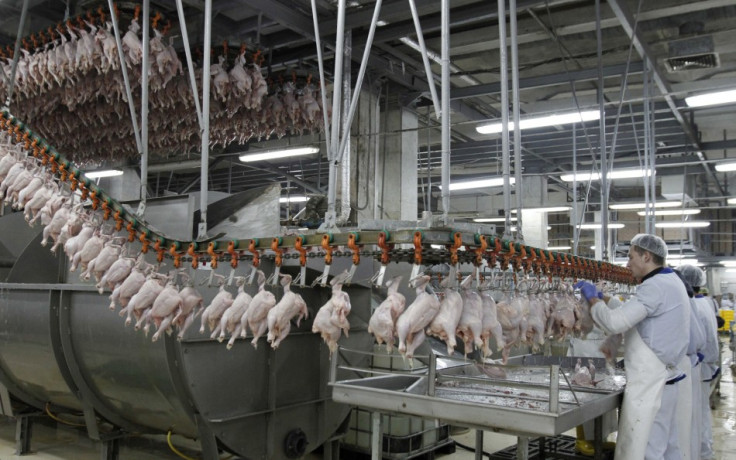Can consuming animal-based products cause a hormonal imbalance in humans?
Oestrogen, progesterone and testosterone are regularly found in animal products. Study shows this influx of hormones has a biological effect on humans.

Hormones have been present in milk and dairy products for decades. However, recent investigations have shown that the hormones injected into animals in the meat trade have a biological effect on humans.
Hormones are used in animal-based food production to make young animals gain weight faster, reduce waiting time, reduce the care required by animals, increase milk production and overall increase the profitability of the meat and dairy industry.
Oestradiol, a steroid hormone that is the strongest of the three natural oestrogens, is approved by the Food and Drug Administration to be pumped into animals that source meat and dairy products. Oestradiol plays a key part in maturing and maintaining the female reproductive system.
Progesterone is also regularly found in animal-based products. Progesterone is another steroid hormone, one which decreases the amount of oestrogen in the uterus.
The presence of additional testosterone in animals, which is thought to regulate bone mass, fat distribution and the production of red blood cells, has also been approved by the Food and Drug Administration.
Growth hormones are also a main factor in the meat production industry. Growth hormones are used to control the amount of care an animal requires, together with controlling milk production and the growth of fat and muscle.
In the European Union and the UK, pumping additional growth hormones into animals has been banned. Growth hormones in the animal-based product trade are also banned in Australia, Canada and the US.
However, there is evidence that the genetic modification of animals has intensified rapidly since 1980, to overcome the banned injection of growth hormones. A genetically modified animal is one that has had certain genetics altered - so that the species can develop in a way that is not naturally occurring.
The Centre for Food Safety note that "at least 35 species of fish are currently being genetically engineered around the world". These species include catfish, trout, flounder and salmon.
Fast-growing genetically modified salmon arrives in South America: Brazil approves the sale of Aquabounty #salmon 🐟🧬🇧🇷 https://t.co/bxDGi4eZ6Y This GM salmon with smallest ecological footprint was previously approved in Canada and -less than a month ago- in USA. pic.twitter.com/sCj50aiIkI
— Daniel Norero (@DanielNorero) June 3, 2021
Since 1997, cows have also been genetically modified. Transgenic cows have had extra genes inserted into their DNA so that they are able to survive in warmer climates and produce more milk.
Barbara O'Neill, a Naturopath and lecturer on health issues, stated: "In Australia [and many other regions], it's against the law for cattle farmers to give their cattle growth stimulants."
O'Neill continued saying: "A cattle farmer's wife told me, she said, once a month they're knocking on our door, pushing the growth stimulants. They tell you to stop the growth stimulant here, then it's not picked up in the blood test at the abattoirs."
A study has found that exposing a pubescent child to growth hormones can make the child enter puberty around seven months too early. However, adolescents can also enter puberty early due to obesity and the consumption of much-processed food.
Although there is no concrete analysis of the effect that an influx of hormones in the animal-based food trade has on consumers, experts are definitive about lifetime exposure to secondary oestrogen from products increasing the risk of breast cancer.
O'Neill revealed: "Some women have never been on the pill or HRT and yet they have an obvious hormonal imbalance."
Speaking of how chickens in the meat trade are forced to fully develop in five weeks, instead of the natural eight to 12 weeks, Barbara O'Neill said: "It's against the law to give growth stimulants in many areas now, so they genetically modified the chicken to produce more oestrogen, so it'll grow quicker."
"If it's in the chicken, it's in the egg," O'Neill warned.
The Naturopath and lecturer is adamant that "meat and its products are also another source of hormone-disrupting substances coming into the human body".
© Copyright IBTimes 2025. All rights reserved.






















